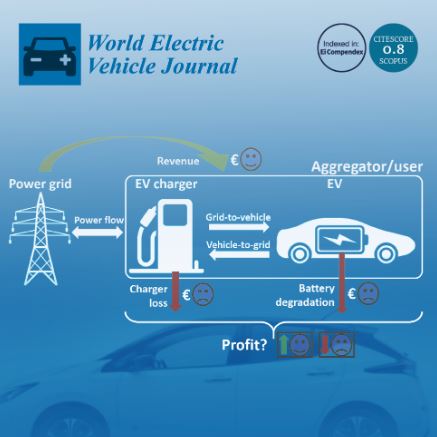Knowledge Hub

Interdisciplinary Analysis of Social Acceptance Regarding Electric Vehicles With a Focus on Charging Infrastructure and Driving Range in Germany
2021
Author(s): Burkert A, Fechtner H, Schmuelling B
Climate change is one of the most pressing issues that humanity is now facing. One of the causes of this phenomenon is the presence of high levels of carbon dioxide (CO2) in the atmosphere. The transportation sector, second only to the energy sector in terms of GHG emissions, emits massive volumes of CO2.
Changing Automotive Work Environment
2021
Author(s): Boston Consulting Group (BCG), Agora Verkehrswende
For this study, the Boston Consulting Group (BCG) and Agora Verkehrswende examined how anticipated structural change would impact traditional automotive manufacturers, suppliers, and service providers.
STATEMENT: Biden Administration Announces Stronger Vehicle Mileage Standards, Sets EV Goal
2021
Author(s): World Resources Institute (WRI)
President Biden, the Environmental Protection Agency and the U.S. Department of Transportation announced stronger vehicle emissions standards, which will be one of the key tools for how the Biden administration can make progress towards the goal to slash the United States’ total greenhouse gas emissions in half by 2030.
The State of Electric School Bus Adoption in the US
2021
Author(s): Lazer L, Freehafer L, Neuberger J, Worker J
Students from low-income communities are particularly exposed to air pollution. 60% of students from low-income families ride the bus to school, compared to 45% of students from families with higher incomes.
Update: Accounting for well-to-wake carbon dioxide equivalent emissions in maritime transportation climate policies
2021
Author(s): Comer B, Osipova L
This briefing paper outlines a methodology for calculating well-to-wake CO2-equivalent emissions from four fossil marine fuels: heavy fuel oil, very low sulfur fuel oil, marine gas oil, and liquefied natural gas.
Transportation Carbon Intensity Targets for the European Union: Road and Aviation Sectors
2021
Author(s): Christensen A
This consultant study introduces a partial equilibrium model to project the mix of renewable fuels most likely to be used to comply with the Commission’s set of proposed targets for the road and aviation sectors.
Thermal Management of Electric Vehicle Battery Systems
2017
Author(s): Dinçer I, Hamut H S. , Javani N
This book provides the reader with the necessary information to develop a capable battery TMS that can keep the cells operating within the ideal operating temperature ranges and uniformities, while minimizing the associated energy consumption, cost and environmental impact.
This book is primarily for engineers and materials scientists either researching or developing Li-ion energy storage batteries who want to understand some of the critical aspects of Li-ion battery technology and gain knowledge about the latest engineering designs and latest materials being used in Li-ion batteries
This book explains the basics of the electric car and its battery before going into detail about advanced battery technologies for electric vehicles, such as lithium-ion batteries, solar energy, and more advancements in battery technology that eliminate range anxieties and put the buyers' mind at rest.
Public Transport provides an accessible introductory text to the field of public transport systems, covering bus, coach, rail, metro, domestic air and taxi modes



